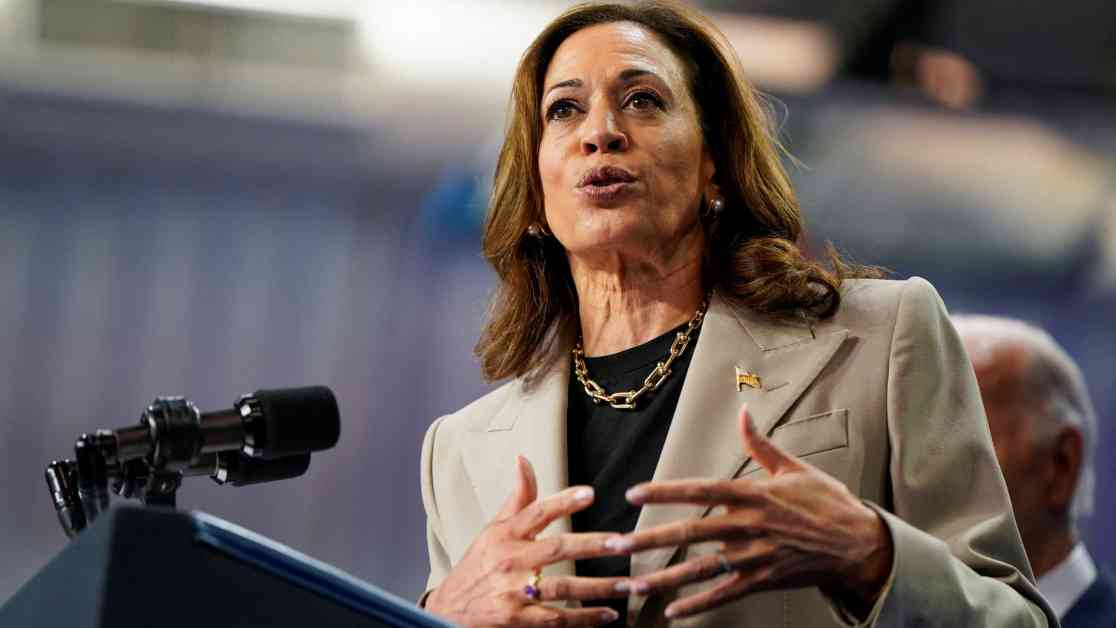Vice President Kamala Harris is set to unveil a comprehensive economic plan that focuses on tax cuts, housing incentives, and price caps in an effort to alleviate financial burdens on American families. These proposals, to be prioritized in her first 100 days in office, aim to address key issues such as the high cost of groceries and prescription drugs, lack of affordable housing, and tax relief for the middle class.
Groceries and Food Price-Gouging
Harris plans to collaborate with Congress to implement the first-ever federal ban on corporate price-gouging on food and groceries. This initiative aims to establish clear regulations that prevent corporations from exploiting consumers for excessive profits on essential grocery items. The Federal Trade Commission and state attorneys general will be empowered to investigate and penalize any violations of this ban.
Additionally, Harris will take a proactive approach in regulating proposed mergers and consolidations among major food producers to maintain fair competition in the market. By cracking down on unfair pricing practices and promoting transparency, the Harris administration seeks to create a more equitable environment for consumers when purchasing groceries.
Affordable Housing and Rent
Recognizing the challenges faced by cash-strapped renters, Harris plans to prevent data firms from inflating lease rates and curb bulk home purchases by Wall Street investors looking to resell at a premium. To address the shortage of affordable housing, Harris aims to construct three million new housing units over the next four years.
Furthermore, the Harris administration will introduce tax incentives for builders who focus on constructing starter homes, making homeownership more accessible to working families. In addition, first-time homebuyers who have consistently paid rent for two years will be eligible for up to $25,000 in down-payment assistance, with additional support for first-generation homeowners. These measures aim to expand housing options and promote financial stability for individuals and families seeking to invest in homeownership.
Healthcare Cost Reduction
Harris plans to extend the Biden administration’s $35 price cap on insulin for Medicare recipients to cover all Americans, addressing the soaring costs of essential medications. By expanding access to affordable insulin, Harris aims to alleviate the financial burden on individuals with diabetes and improve overall healthcare affordability.
In line with her cost-cutting strategies for the food industry, Harris’s healthcare policy focuses on implementing stricter regulations and enforcing anti-trust measures to prevent pharmaceutical companies from engaging in anti-competitive practices. By cracking down on barriers to competition and abusive practices in the pharmaceutical industry, the Harris administration aims to lower healthcare costs and improve access to vital medications for all Americans.
Tax Cuts and Relief
Building on the Biden administration’s efforts to restore expanded child tax credits introduced during the COVID-19 pandemic, Harris plans to further expand tax relief for families with newborns by offering up to $6,000 in assistance. This additional support aims to alleviate the financial strain on families during a period of increased expenses related to childcare and infant care products.
Moreover, Harris’s proposal includes provisions for paid leave for parents, acknowledging the challenges faced by many families in balancing work and childcare responsibilities. By providing financial support and flexibility for families, the Harris administration seeks to promote economic stability and well-being for households across the country.
Subheadings:
1. Groceries and Food Price-Gouging
2. Affordable Housing and Rent
3. Healthcare Cost Reduction
Through these targeted economic proposals, Vice President Kamala Harris aims to address pressing financial concerns facing American families and strengthen their financial security. As she prepares to deliver her first dedicated policy speech in the battleground state of North Carolina, Harris’s comprehensive plan signals a commitment to promoting economic equity and opportunity for all.

















